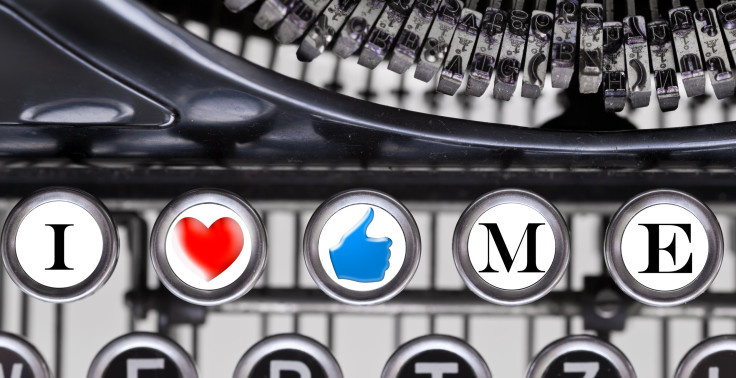Narcissistic Personality Disorder Marker Found Incorrect For Diagnosis: Counting 'I's Won't Work

Narcissism has a lot of different personality attributions associated with it, such as entitled, self-centered, and greedy. But one way psychologists have been screening for the egocentric personality disorder turns out to have no merit. New research published in the Journal of Personality and Social Psychology came to the conclusion that using the pronoun “I” doesn’t serve as a sufficient enough way to screen for narcissism.
Narcissistic personality disorder has accompanying symptoms that vary from expecting praise and admiration to having fantasies about power, success, and attractiveness, according to the Diagnostic and Statistical Manual of Mental Disorders. People who are diagnosed with the disorder are also found to have an inflated sense of self-importance, deep-seeded need for admiration, and fragile self-esteem.
The research team from the University of Arizona’s psychology department, measured 4,811 people with 15 different oral and written experiments in order to quantify how strongly a true narcissism diagnosis was linked to the use of first-person singular pronouns, such as “I.” They asked them to write essays, tell stories about their past, complete questionnaires, engage in a candid stream-of-conscious conversation, and open access to their Facebook page. They found the frequency of the word had a “near-zero” effect on who were and weren’t officially diagnosed as narcissists.
Labeling people who use the word “I” as narcissists, has been a procedural marker for psychologists for decades, but once researchers took a closer look they realized it was “absent of a real effect,” according to the study. The refer “I-talk,” as a screening marker with no basis of applicable use. Just because your friend uses the word twice as much as you do when telling the same story, for example, doesn’t have any medical merit as a red flag for narcissism. They found males had a slightly higher correlation between the use of the word “I” and narcissism than females, but it wasn’t enough to be scientifically significant.
There is a quick test that successfully works to screen for narcissism, though. Recently, researchers designed a one-question personality test, which identified narcissistic personality disorders with surprisingly accurate results. Researchers from the University of Gettysburg College put 2,200 people of varying age through 11 different experiments and found when people self-assessed their level narcissism on a scale, it proved to be reliable.
"People who are narcissists are almost proud of the fact," the study’s co-author Brad Bushman, and a professor of communication and psychology at Ohio State University, said in a press release. "You can ask them directly because they don't see narcissism as a negative quality — they believe they are superior to other people and are fine with saying that publicly."
Science says if you want to measure for narcissism, don’t tally up how many times they say “I” — save yourself the time and just ask them if they’re a narcissist instead.
Source: Carey AL, Brucks MS, K üfner ACP, Holtzman NS, Back MD, and Donnellan MB, et al. Narcissism and the Use of Personal Pronouns Revisited. Journal of Personality and Social Psychology. 2015.
Published by Medicaldaily.com



























